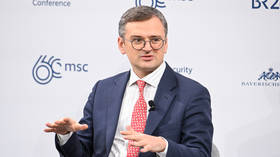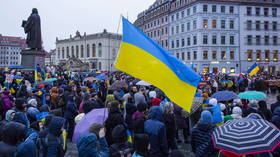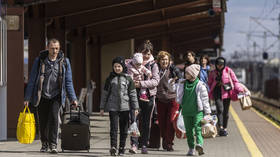Kiev to fight assimilation of its citizens abroad – FM

Kiev is concerned about Ukrainians living abroad integrating into the societies of their host countries too fast, Foreign Minister Dmitry Kuleba told a forum in Kiev on Friday.
Keeping their compatriots living abroad from assimilating is now one of the top priorities of Ukrainian diplomacy, he said.
According to Ukrainian media outlets, nearly 5 million people who fled Ukraine since the beginning of the conflict were still living abroad as of January 2024, mostly in Germany and Poland. According to the outlets, up to 2.3 million of these émigrés might never return home.
“It has become clear that assimilation would be extremely fast if we do not change our policy towards Ukrainians abroad,” Kuleba said. The minister added that he does not believe “most Ukrainians who left will return.” He also maintained that the authorities should work with those living abroad for them to “remain Ukrainian.”
The senior diplomat provided few details about the “comprehensive policy” his ministry was supposedly developing to achieve this goal. The list of measures mentioned by Kuleba involved “multiple citizenship” and closer cooperation with organized Ukrainian communities abroad, as well as digital consular services.
The minister stated that his agency had already done some groundwork in response to a personal request from President Vladimir Zelensky, and was planning to present proposals to him in the near future. “The president has set the goal,” Kuleba said, noting that it will require coordination among various government structures due to its complex nature.
A survey conducted by Germany’s office for migration and refugees (BAMF) in cooperation with research and polling centers last July showed that 44% of Ukrainians who went to Germany as refugees want to stay there – up from 39% in a poll conducted the previous year.
Another poll from this February shows that Germans believe Ukrainians have failed to integrate in the two years that have passed since the start of the conflict. Half of the respondents also said Ukrainian refugees receive ‘too much support’.
Attitudes toward Ukrainians in Poland, another country that took in a large number of refugees, have also dramatically shifted, local media reported in February. A significant number of Poles are now opposed to Ukrainians continuing to receive social and welfare benefits, the newspaper Rzeczpospolita said, citing a January poll.
The media outlet also reported earlier that the influx of Ukrainians fleeing the conflict led to an increase in crime in Poland.














